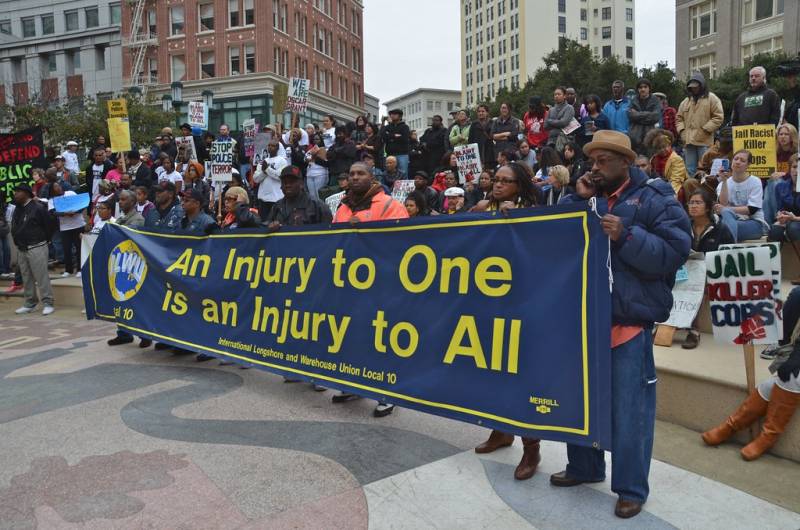As protests around the country continue to call attention to systemic racism and police violence, this year’s Juneteenth is a reminder that the United States has a long way to go in truly reckoning with its history of white supremacy.
Longshore workers up and down the west coast are commemorating Juneteenth — a day honoring when a group of enslaved people in Texas learned they were finally freed from slavery two years after the Emancipation Proclamation — by shutting down a key part of the region’s economy.
The International Longshore and Warehouse Union (ILWU) chapters in San Francisco and Oakland will not handle cargo to stand in solidarity with all those protesting police violence and racism. This historic protest, however, is just one of the many actions the union has taken since its inception to address racial inequality and police violence.
“If you don’t know why the Bay Area so liberal, if you don’t know it has something to do with the long history of this union, you actually don’t know the Bay Area nearly as well as you think,” says historian Peter Cole, author of “Dockworker Power: Race and Activism in Durban and the San Francisco Bay Area.”
The union’s anti-racism work, including protesting police killings, dates back to the Great Depression era. On July 5, 1934, San Francisco police shot and killed two maritime workers who were participating in a strike against unsafe working conditions and unfair hiring practices.

